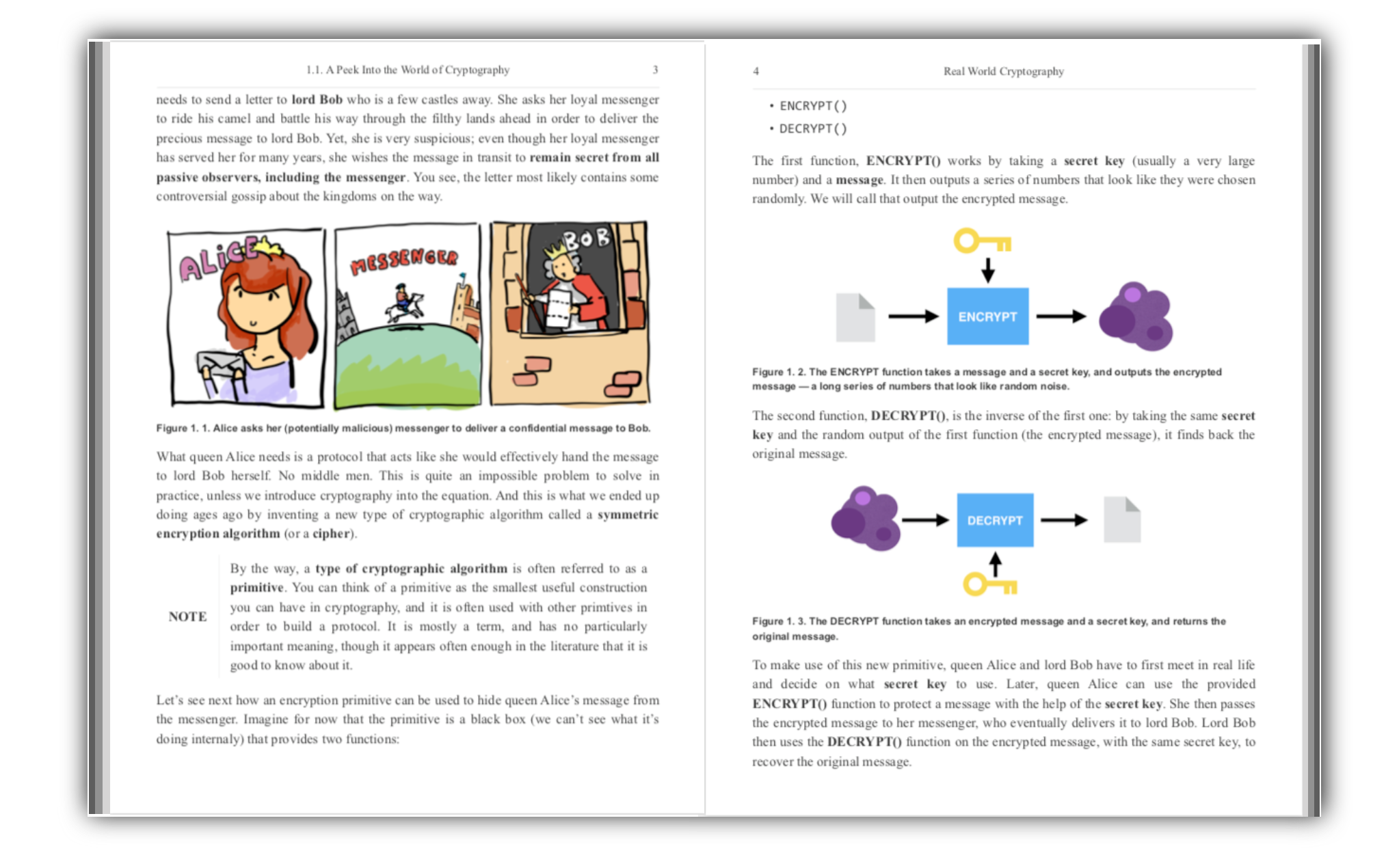Why are people so bothered about truly random numbers? posted February 2014
Question on superuser.com : Why are people so bothered about truly random numbers instead of ones generated by a program?
comment on this story
Hey! I'm David, cofounder of zkSecurity and the author of the Real-World Cryptography book. I was previously a crypto architect at O(1) Labs (working on the Mina cryptocurrency), before that I was the security lead for Diem (formerly Libra) at Novi (Facebook), and a security consultant for the Cryptography Services of NCC Group. This is my blog about cryptography and security and other related topics that I find interesting.
Quick access to articles on this page:
more on the next page...
Question on superuser.com : Why are people so bothered about truly random numbers instead of ones generated by a program?
comment on this storyKen Shirriff has posted an amazing post on his blog on how he managed to manually make (meaning, he didn't use the official bitcoin application) a transaction in the bitcoin ecosystem.
I'm reading through it as I'm typing this, and it's really well explained, you get to see exactly what he does in Python and there are pictures!
comment on this storyJean-Jacques Quisquater, a renowned Belgian professor in cryptography got his computer hacked, seems like NSA has something to do about it.
1 commentSo this guy owned @N on twitter and got extorted his account by a phishing attack. The story is well written and you should read it here : https://medium.com/p/24eb09e026dd
but for a tl;dr the attacker called his paypal account to ask them for his credit card's last 4 digits. Then he called godaddy to ask them to reset the password. They only asked him for the 2 first digits and the last 4s. The attacker just had to guess the 2 first digits (and he did it on the first try, he could have kept calling and trying otherwise).
Now that he had @N's domain's name, he could now see his emails. Took over @N's facebook account and started mailing him "threats".
It's pretty crazy how easy phishing is.
comment on this storyI have to code a whitebox using DES encryption in a class. Which is pretty cool (I would have prefered doing it with AES but the other group got tails and we got heads).
Here is where the Stanford course I passed on Coursera shines. The explanation of DES on it is brilliant. I was wondering about the initial and final permutations that occurs in the algorithm though and Dan Boneh doesn't really talk about it besides saying it's not for cryptographic purposes.
I found a solution on a new sub-stackoverflow dedicated to Cryptography : http://crypto.stackexchange.com/questions/3/what-are-the-benefits-of-the-two-permutation-tables-in-des
6 commentsThat kind of stuff happens and it's always pretty hard to know it happened and how it happened.
Here's an article about a guy who doesn't seem to know much about security but does a fine job finding out what happened to him and what he can do to avoid future hacks.
http://www.corrspt.com/blog/2014/01/18/tale-vps-hacked/
comment on this story
Dogecoin, the bitcoin parody, just saw its price reaching a new level AND is going to allow the jamaican bobsled team to go to the 2014 winter Olympics.
comment on this storyDirect Matin Bordeaux, which is a free magazine in Bordeaux that is handed at tram stations everywhere in the city, just wrote an article about me and my last project : 3pages.fr

you can read it here
comment on this story
My book Real-World Cryptography is finished and shipping! You can purchase it here.
If you don't know where to start, you might want to check these popular articles:
Here are the latest links posted:
You can also suggest a link.